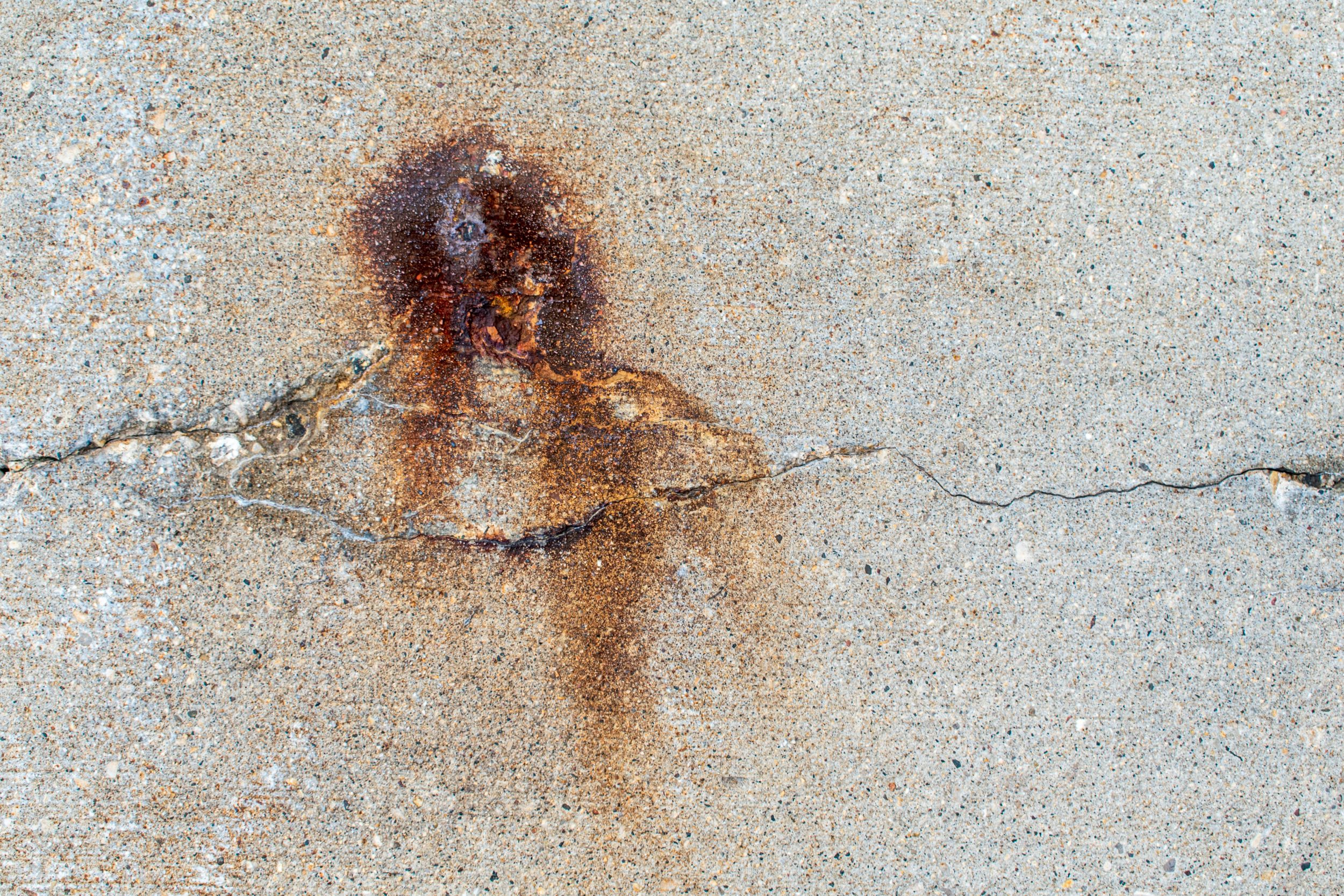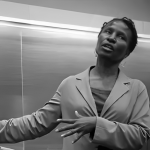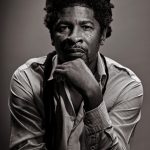I am cognizant of the interrelatedness of all communities and states. I cannot sit idly by in Atlanta. . . . Injustice anywhere is a threat to justice everywhere. We are caught in an inescapable network of mutuality, tied in a single garment of destiny. Whatever affects one directly, affects all indirectly. Never again can we afford to live with the narrow, provincial “outside agitator” idea. . . . You deplore the demonstrations that are presently taking place. . . . But your statement, I am sorry to say, fails to express a similar concern for the conditions that brought about the demonstrations. —Martin Luther King, Jr., “Letter from a Birmingham Jail,” April 1963
When foundations and corporations attempt to run the world by buying politicians and police forces, what’s the role of ethical citizenry and captives? How do citizens and captives comprehend the scope and strategies to resist the massive engineering of predatory policing—a rising urban phenomenon that reveals that the term “military occupation” is more than a metaphor, and reaches way beyond any particular city? And when such violence is deployed against citizens by the police, who are protected by the government, who then protects the citizen and captive from this state criminality, which is approved and funded by corporations and the wealthy?
These are questions we invite readers to consider in a set of paired essays about ongoing attempts in Atlanta to fund and build a massive new police training center where law enforcement will practice counterinsurgency techniques to use against the city’s own citizens. In this first part, we review the militaristic and legal violence that police have been unleashing against people who dare to oppose the new facility, and examine how the Atlanta Police Foundation (APF) draws on vast private wealth to set public policy against the public’s wishes. In the second essay, we examine how these strategies practice a form of domestic colonialism with techniques rooted in imperial counterinsurgency.
The Atlanta Police Foundation (APF) is a private foundation with strong corporate ties that supports the Atlanta Police Department. As a private nonprofit, it steers Atlanta policing policy with zero public accountability. APF’s promotional tag—“21st Century Community Policing”—suggests concern for non-elite communities. But the language APF uses to describe the aim of the Atlanta Public Safety Training Center—commonly known as “Cop City”—actually presents a lethal Trojan Horse as a humanitarian gift “to make Atlanta the safest large city in the nation.” Without specifying the beneficiaries, APF boasts that it will bring “resources to underserved neighborhoods” that are already underfunded and overpoliced—or overpoliced because they are underfunded. APF also claims that it will “cultivate a mindset of true servanthood” within the Atlanta Police Department (APD). What does APF’s twisted vision of “true servanthood” look like in practice?
In January 2023 Atlanta state troopers shot and killed Manuel “Tortuguita” Estaban Paez Terán, a twenty-six-year-old environmental activist who was protesting the destruction of ancestral forests to build Cop City. Police claimed that Tortuguita had fired a gun at them, but a private autopsy informed the public that Tortuguita had been sitting cross-legged on the ground with their hands raised when Georgia troopers shot them fifty-seven times. While riddling Tortuguita’s body with bullets, a Georgia state trooper was shot and injured, almost certainly by “friendly fire” from another officer. After the killing, organizers obtained public information about the police involved in the shooting and distributed flyers in the neighborhood where one of the officer’s lived. Police jailed them on stalking and felony intimidation for sharing this public information with the community.
More from our decarceral brainstorm
Every week, Inquest aims to bring you insights from people thinking through and working for a world without mass incarceration.
Sign up for our newsletter for the latest.
Newsletter
Organizing food support for families and communities in Atlanta for months, Tortuguita and their collectives provided what the city withheld. Their murder and the subsequent arrests are part of an organized campaign to terrify and jail all who oppose the building of Cop City. In March prosecutors also charged twenty-three people with domestic terrorism after clashes between police and protesters at the proposed site of Cop City. At the end of May, a police SWAT team, in full gear and weapons, raided the Atlanta Solidarity Fund (a community bail fund), arresting three of its leaders, Marlon Scott Kautz, Adele MacLean, and Savannah D. Patterson. The three have been charged with money laundering and charity fraud, accused of “misleading contributors” to channel funds to the Defend the Atlanta Forest, which was, according to the warrant, “classified by the United States Department of Homeland Security as Domestic Violent Extremists.” In fact, the Department of Homeland Security never designated Defend the Atlanta Forest or other community caretakers as “Domestic Violent Extremists.” Yet that did not stop DeKalb County Superior Court judge Shondeana Morris, a Black woman appointed by Republican governor Brian Kemp, from signing the warrant. The warrants claim that the “illegal” reimbursements included expenses for “forest clean-up, totes, covid rapid tests, media, yard signs.” The Atlanta Solidarity Fund issued a statement saying that its sole function is to provide resources to protesters facing repression. Following the arrests, the National Lawyers Guild (NLG) released a statement asserting that bail funds protect the right to dissent and to have access to counsel. On June 2 Judge James Altman granted bail.
In June 2020 an Atlanta police officer shot and killed Rayshard Brooks, less than a month after George Floyd was killed. Brooks’s funeral was held at Reverend Martin Luther King, Jr.’s Ebenezer Baptist Church. King’s daughter Bernice King and Reverend Raphael Warnock, then a Senate candidate, addressed the funeral gathering and the public. Warnock spoke eloquently in the historic church: “Rayshard Brooks is the latest high-profile casualty in the struggle for justice and a battle for the soul of America. This is about him but it is so much bigger than him.”
Neither of Georgia’s democratic senators—Warnock and Jon Ossoff—spoke of a “battle for the soul of America” when three years later Georgia troopers assassinated Tortuguita in the forest. When the twenty-three environmental activists were arrested, Senator Ossoff deplored the “violence” of an “extremist minority”; he did not address the lethal anti-human violence of the Georgia state troopers under the control of Governor Kemp, who rages about terrorism without acknowledging to the public the functions of his Georgia troops. Both senators expressed concerns about the arrests of the organizers of the Atlanta Solidarity Fund; yet they never articulated or advocated for a constitutional right not to be assassinated by police forces. If no one is policing the police for the safety of the community, then security as community care becomes high priority. As public referenda (or even recalls) are waged, electoral politics and legalism appear insufficient in demilitarizing a war zone built and protected by the state with the backing of corporations.
At the June 5–6, 2023, Atlanta City Hall hearing, hundreds of residents—varying in age, race, gender, and income—denounced Cop City for fifteen hours. Despite considerable opposition from the public and community organizers, on June 6, in an 11–4 decision, the Atlanta City Council approved $67 million in funding for the Cop City project. The total cost is anticipated to be $90 million. On June 7 opponents of Cop City filed a petition to create a ballot measure that would ask voters to halt the building of the complex. On June 20 they filed a lawsuit against acting city clerk Vanessa Waldron for delaying certification of the petition. Shortly thereafter, Waldron certified the petition. The petition must now receive signatures from 70,000 Atlanta voters—some argue that the number is closer to 100,000, given likely challenges—by August 15 to be certified and added to the ballot. The referendum petition seeks to repeal the ordinance which authorized the city to lease the eighty-five-acre Intrenchment Creek Park—renamed Weelaunee People’s Park by organizers—for the building of Cop City. Cop City is slated to be built on part of what the Muscogee Creek called the Weelaunee forest before state-sponsored terrorism forced them from the lands in the 1820s and ’30s. Before it was a park, now reclaimed by organizers as a forest for food and gardens, it was used by the state of Georgia as a prison farm, on which convict laborers were enslaved growing food for other inmates. Before that it was a plantation. Through duplicitous and antidemocratic politics, federal, state, and local politicians—along with the APF, ADP, and corporate sponsors—plan to dismember the Weelaunee forest into a training ground for war.
APF promises the enhancement of civilian safety through private funding. Yet, the “public-private partnership model” that APF celebrates is more accurately described as a raid on public coffers that will deprive working-class Black Atlantans while building equity for white billionaires and corporations. Atlanta’s city council has pledged millions of dollars to bankroll the endeavor. Black citizens are being priced out of a city that they can no longer afford to live within in part because public monies are going to fund a military playground where police will be taught counterinsurgency tactics that could be used to kill Black Atlantans.
Pushed by the APF, under the guise of a public project, Cop City is heavily backed by corporate interests. APF has notable financial and leadership ties to a long list of companies, including Waffle House, Equifax, UPS, Wells Fargo, Home Depot, AT&T, Delta Airlines, Chick-fil-A, and Koch Industries. Cox Enterprises, Inc., a multi-billion-dollar privately held communications corporation that shapes public perceptions, is recognized as a lead funder of Cop City. (In a July 2023 Black Power Media/Renegade Siafu TV [BPM/RSTV] interview, a member of the Cox family and a member of Atlanta Black clergy critique their respective institutions.) Atlanta’s elected officials—its mayor, chief of police, and city councilors—are attentive to the directives of the APF, the brain trust building, banking, and redefining Atlanta through Cop City. APF’s website boasts that President Obama’s 2015 Task Force on 21st Century Policing promoted Atlanta as a “model city,” claiming that it is 1 of only 15 jurisdictions out of 18,000 police forces that received such an honor. Celebrating this endorsement from the first Black president veils the fact that the Atlanta democratic political figures rooting for Cop City are Black but the funders are white corporations. According to the APF, the police training received at Cop City will “improve morale . . . for APD.” How so? Training in domination, violence, and abuse of power increases civilian distrust of policing.
Despite the massive protests in the wake of George Floyd’s 2020 death at the hands (or knee) of a Minneapolis police officer, police killings reached an all-time high in 2022. Simultaneously, APD lost police after the 2020 protests; it plans to hire 750 officers over three years with retention bonuses and relocation stipends. Mayor Andre Dickens maligned environmental and community protectors protesting Cop City by calling them “outsiders”—but APD’s growth requires recruiting “outsider” police to accelerate gentrification.
APF sells its product: policing. Meanwhile Atlanta citizens go without bus shelters, well-funded schools, free lunches for children and elders, adequate housing and health care, clear air, and parks. APF sees the forest (and the city budget) as the property not of the public but of affluent sectors and corporate wealth, whose interests are served by the comprador class. People sleep in substandard public housing, or on cardboard in streets and alleys, with insufficient food and care, while investors build a political economy based on predatory policing. Once built, Cop City would train APD, state, regional, and international law enforcement agencies “in 21st Century Policing best practices” while also providing a cushy “gathering spot for community events and conversations” amid the destruction of Black communities through terrorizing those communities and the environmentalists and caretakers protecting them.
Despite its stated mission to care for (Black) youth, the APF still projects them as primary targets of the combined forces of the APD, Fulton County District Attorney, judges, and Atlanta Criminal Justice Commission which will “address Atlanta’s repeat offender issue.” APF promises “Youth Engagement” to “expand its At-Promise youth initiative” to “divert Atlanta youth from crime to brighter pathways.” When nonprofits partner with police (or carceral foster care) to help youth in communities neglected from the city government and abused by predatory policing, they actually worsen the health outcomes of these communities. Artist Hausson Byrd’s spoken-word meditation “Projection” poetically addresses the violence of predatory policing. Police networks, as Byrd notes, project their violence upon civilians, citizens, and captives. The disproportionately targeted are poor, working class, and people of color. Rather than ask communities what forms of assistance are useful, governance dictates to under-resourced communities, and continues to destabilize them through financial neglect and punitive policing. If militarized policing is a colonizing project for cities writ large, it is imperative to think beyond the plans and protests of individual cities, and political betrayals, in order to map trajectories that inform war resistance strategies.
Editor’s Note: This essay and its second part are the third and fourth installments in the authors’ four-part series Abolition Alchemy. Changa and James continue this discussion on YouTube with a new video, Resisting Cop City Corporate and Clergy Colonizers, which they recorded for Black Power Media to accompany their Inquest article.
Image: Jarrod Erbe/Unsplash


